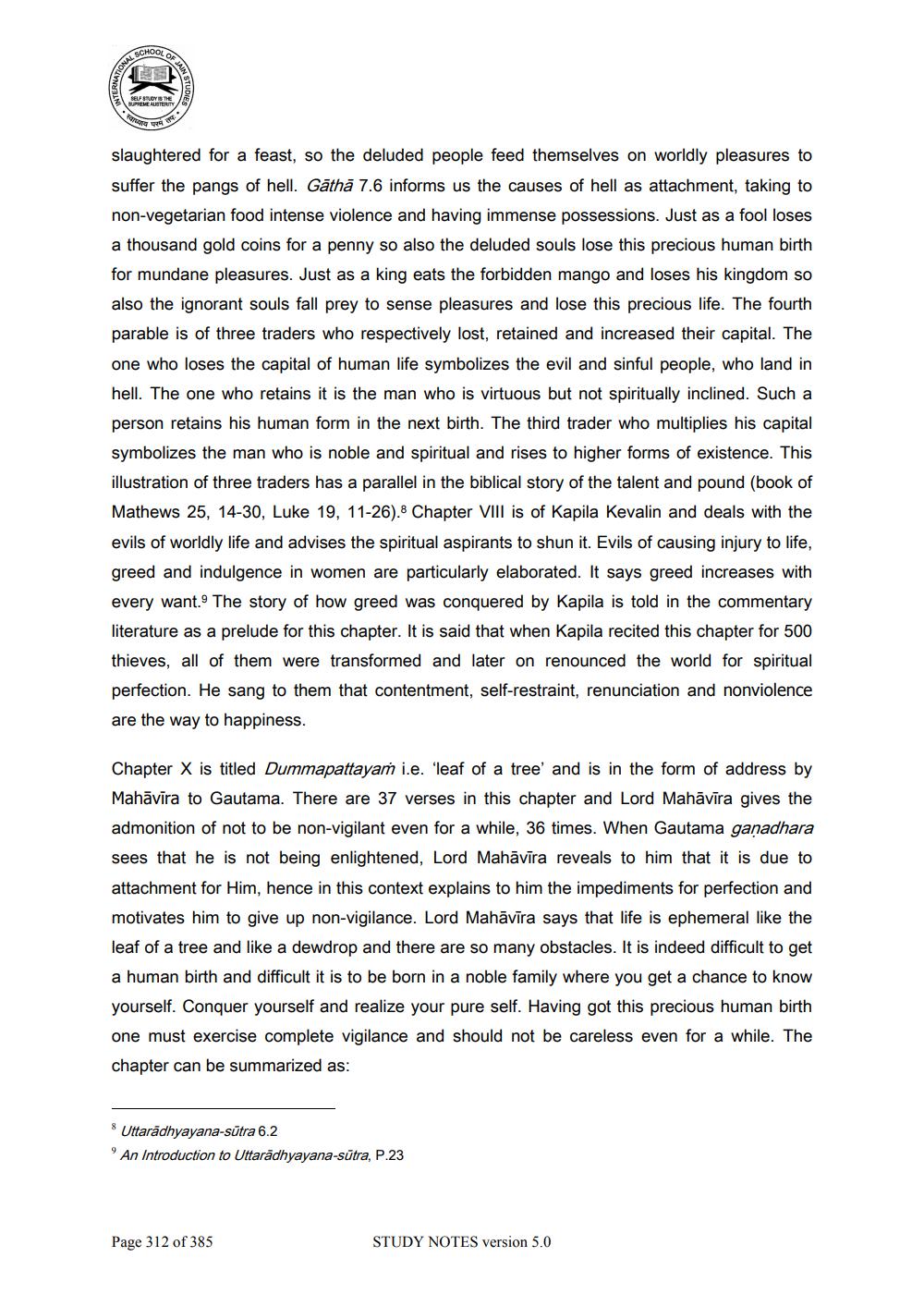________________
INTERNATION
SCHOOL
OF
SELF STUDY IS THE
SUPREME AUSTERITY
स्वाध्याय परम
STUDIES
slaughtered for a feast, so the deluded people feed themselves on worldly pleasures to suffer the pangs of hell. Gāthā 7.6 informs us the causes of hell as attachment, taking to non-vegetarian food intense violence and having immense possessions. Just as a fool loses a thousand gold coins for a penny so also the deluded souls lose this precious human birth for mundane pleasures. Just as a king eats the forbidden mango and loses his kingdom so also the ignorant souls fall prey to sense pleasures and lose this precious life. The fourth parable is of three traders who respectively lost, retained and increased their capital. The one who loses the capital of human life symbolizes the evil and sinful people, who land in hell. The one who retains it is the man who is virtuous but not spiritually inclined. Such a person retains his human form in the next birth. The third trader who multiplies his capital symbolizes the man who is noble and spiritual and rises to higher forms of existence. This illustration of three traders has a parallel in the biblical story of the talent and pound (book of Mathews 25, 14-30, Luke 19, 11-26).8 Chapter VIII is of Kapila Kevalin and deals with the evils of worldly life and advises the spiritual aspirants to shun it. Evils of causing injury to life, greed and indulgence in women are particularly elaborated. It says greed increases with every want. The story of how greed was conquered by Kapila is told in the commentary literature as a prelude for this chapter. It is said that when Kapila recited this chapter for 500 thieves, all of them were transformed and later on renounced the world for spiritual perfection. He sang to them that contentment, self-restraint, renunciation and nonviolence are the way to happiness.
Chapter X is titled Dummapattayam i.e. leaf of a tree' and is in the form of address by Mahāvīra to Gautama. There are 37 verses in this chapter and Lord Mahāvīra gives the admonition of not to be non-vigilant even for a while, 36 times. When Gautama gaṇadhara sees that he is not being enlightened, Lord Mahāvīra reveals to him that it is due to attachment for Him, hence in this context explains to him the impediments for perfection and motivates him to give up non-vigilance. Lord Mahāvīra says that life is ephemeral like the leaf of a tree and like a dewdrop and there are so many obstacles. It is indeed difficult to get a human birth and difficult it is to be born in a noble family where you get a chance to know yourself. Conquer yourself and realize your pure self. Having got this precious human birth one must exercise complete vigilance and should not be careless even for a while. The chapter can be summarized as:
Uttaradhyayana-sūtra 6.2
9
An Introduction to Uttaradhyayana-sūtra, P.23
Page 312 of 385
STUDY NOTES version 5.0




